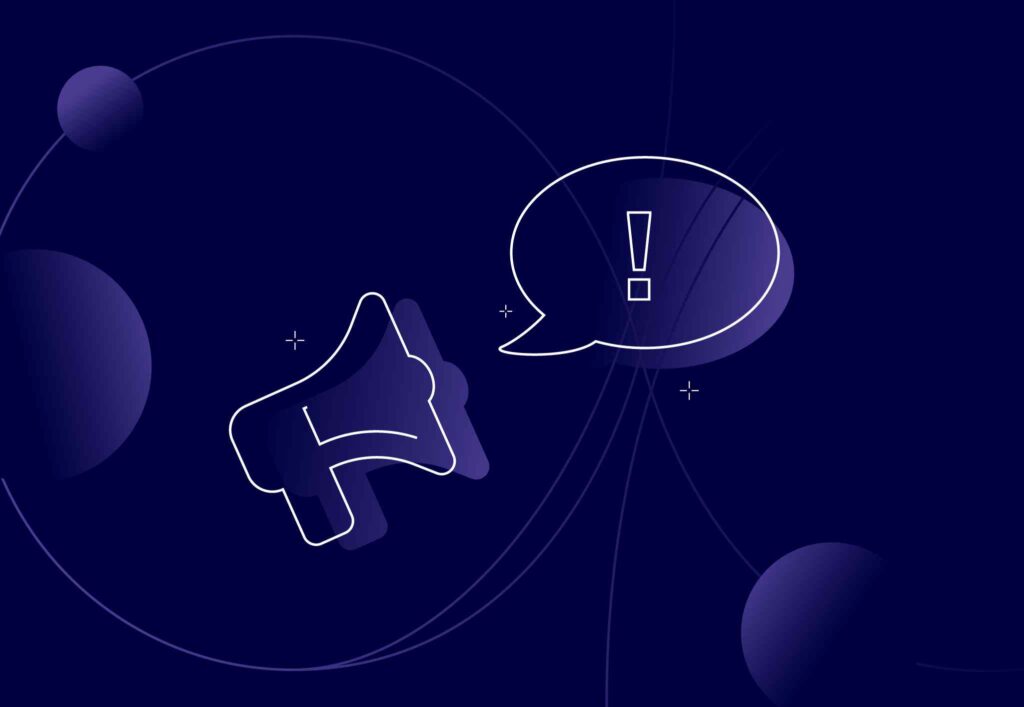
Looking to the future: Members of team Embryo give their 2024 marketing predictions

What Will 2024 Bring? Our Experts Weigh In with Their Predictions
2024 is just a few weeks away and to mark it some of our marketing experts have offered up their predictions for the next 12 months.
While AI, updates, controversial tech owners, and court battles about privacy and data continue to rumble on, the potential for brands to transform their business through consistent, high-quality digital marketing campaigns is more possible than ever.
Hear from some of our heads of department, writers, editors, and search engine optimisers about what they think the next 12 months will hold for the world of marketing, tech, and social media.
To learn more about how our experts, such as the ones offering their predictions, get in touch with our team today by phone at 0161 327 2635 or email info@embryo.com.
George Noon, Head of PPC
Bing to grow its search engine market share
‘Google has actively increased the cost-per-clicks (CPCs) of keywords from 2-10%. In 2023, Google’s VP Jerry Dischler openly admitted this in court, claiming that the move was to ensure their revenue targets were met.
However, this decision has greatly questioned the integrity and competitive nature that they have always prescribed to keyword bidding.
In the PPC world, have seen continuous CPC rises on Google and, as a result, brands have struggled to produce similar results in their market.
Combine all of the above with Bing’s AI innovations, which supersedes anything Google’s Bard has been able to produce, and I forecast an increase in Bing’s market share.
The extent to which this change is felt depends on how well Bing can position itself as the default browser for phones, tablets, and other electronic devices.
If CPCs become even cheaper on Bing, there will be a demand shift from advertisers, and Bing will need to support this influx of additional ad spend by furthering its efforts to increase the number of active users.’
Harriet Tuite, Head of Paid Social
Consistent Investment in Meta but a Steady Rise in Secondary Social Channels
‘Meta will continue to be a powerhouse in 2024. We’ll see consistent investment as brands look to capitalise on 2023’s improved performance, thanks to Meta’s development of server-side tracking (Conversions API) and AI-led audience targeting (Advantage+).
To push paid social performance further, we’ll see brands welcoming additional social channels into their channel mix, e.g., Pinterest, TikTok, and Reddit.
Although less advanced in their advertising offering, these channels are much more invested in seeing advertisers succeed. For example, regardless of your spending levels, on Pinterest, you get a dedicated account manager who can give you ad-level recommendations along with industry-level recommendations and access to tools.
With Meta, speaking to a human who isn’t just reading from a script is like drawing blood from a stone.
Adding more social channels into the mix will drive brand awareness and visibility, but also bring its problems around attribution and tracking. Brands and agencies will, therefore, have to shift towards more of an overall marketing return on investment – such as Marketing Efficiency Ratio – to measure success, rather than segmenting out individual channel performance.
This approach will allow more top-of-funnel investment and emphasise the importance of digital channels, such as PPC and Paid Social, working together to achieve one shared goal.’
Jess Atkinson, Head of Organic
Change in attitude to AI content and increased importance in core web vitals
‘Google recently updated their guidelines to say that, essentially, they don’t care if your content is generated by a human or a machine, as long as it’s fit for purpose and, quote, “created for people”.
However, after back-to-back Core Web Vitals updates, many case studies have surfaced from eager SEOs who have tried to rank solely AI-generated content and experienced huge dips in visibility after the most recent update.
It’s extremely rare for Core updates to happen so close together (we barely had room to breathe!). Call me a sceptic, but I believe the reason for the back-to-back updates is Google making an error in their initial rollout and trying to right the wrongs of so many innocent websites being punished with ranking visibility hits.
Despite all that, we must remember that artificial intelligence in search is an incredibly new thing. It took Google many years to get on top of quality control for content. Still, hopefully, 2024 will bring some stability and clarity about how AI can be properly utilised for website content.
My advice? Use AI as a crutch and do not give it full control.
My second prediction relates to Core Web Vitals. Despite Google claiming that Core Web Vitals isn’t as important as we were led to believe, this doesn’t fully wash with what’s to come; in March 2024, a Core Web Vitals metric called “First Input Delay” will be replaced by “Interaction to Next Paint”.
This means Google will be more intricately measuring how fast and responsive your website is when a user wants to navigate through and rewarding or punishing visibility accordingly.
This new metric could lead to a renewed focus on page experience, as Google is diving deeper to score you not only on your initial page load but also on how quick it is to navigate from one page to another once you’re on the website.
My recommendation would be to ensure you’re doing all you can to ensure your website not only loads quickly from the search results but navigates quickly, too. You never know – it could be the one metric that helps you stand head and shoulders above the competition!’
Amy Leach, Organic Lead
Voice Search to Take Centre Stage
‘Whenever predictions for the next year roll around, the topic of voice search is almost always on the list.
There is no doubt that the prevalence of voice search has increased, particularly with Siri, Alexa, Amazon’s Echo Dot and Google Home (to name just a few) becoming more and more popular. Every year, we hear that this is the year that voice search takes over – after all, studies show that, worldwide, there are 4.2 billion voice assistants in use as of 2023, and this number is predicted to reach 8.4 billion by 2024.
However, Google is already rewarding content that targets long-tail, user-centric key phrases that people want the answers to, which lines up well with the requirements of voice search. Voice search is often a little more conversational than what we might type into Google, but the intent is the same, and that’s something that search engines are getting cleverer at determining.
The increase in voice search has been happening slowly but surely for some years now, but, when combined with all of the updates Google has brought in to help user-friendly content thrive in 2023, it seems to me that voice search won’t be the biggest adjustment marketers will have to make.’
Matthew Butchart, PPC Account Manager
AI to continue to show its value
‘ChatGPT, Midjourney, and other tools are starting to leave the “playbox” phase, and with businesses using AI more and more, we’re going to start seeing two outcomes:
- A great deal of “vendor trash”! Endless packages of ChatGPT prompts or AI-driven services (that aren’t as powerful) flooding the market.
- Perhaps not quite in 2024, but maybe. I suspect we’ll start seeing some very significant use cases or stories about departments “revolutionising” things in a groundbreaking manner.
As these emerge, they’ll drive a bit of a gold rush across many industries and niches (not just PPC or digital marketing). This will be because increasingly more businesses will scramble to apply those use cases to their workflows.
Further, I think we’ll also start to see the impact and genuine value AI can have on the workforce. As my favourite serial-red-shirt-wearer Tom Scott said earlier this year on YouTube, we’re very likely to be at the start of a truly world-altering change in the way we use technology.
Tom points out that the last time a world-altering change occurred on this potential scale was the launch of the internet. I’ve started using the subscriber model of ChatGPT 4, and while I haven’t thrown anything too challenging at it yet, some of the new beta tools that are being given to subscribed users are extremely powerful.
I remember in the Summer of 2022, I enjoyed making weird, warped (but fairly accurate) images on Dall-e Mini by asking it to visualise things like “Boris Johnson on a unicycle” and getting funny results. Now, just over a year later, I’m taking photos of whiteboards and turning them into slides, instantly.
The technology is moving incredibly fast and, while it is showing value, we are already seeing some of the worst outcomes manifesting, with celebrity and politician “deep fakes” testing the waters and making the news recently (Tom Hanks has had to release an announcement that he isn’t endorsing a dental product in digital ads).
Tom Scott predicts we’re at the bottom of an exponential growth chart, and I’m seeing more and more evidence that he’s right.’
Megan Atkinson, Senior Paid Social Executive
A make-or-break year for AI influencers
‘The AI revolution in social media is no secret, and I believe it’s only set to get bigger. A recent development in the world of AI on social media is Meta’s AI influencers. For context, Meta has introduced Billie, an Instagram chatbot developed in partnership with Kendall Jenner, highlighting again what AI is capable of.
Billie and other AI influencers blend tech and celebrity culture. The idea is that they’re helping brands make more “authentic” content, thanks to celebrity partnerships. But for me, it’s like when publishers put celebrities’ names on ghostwritten books. Some people may not like it, but it sells books.
So, what’s next for these AI influencers? They’re currently in the spotlight, receiving both positive and negative attention. TikTok might be where we see them taking over next, creating a new era of digital marketing.
At this stage, it’s still being determined if this latest fad will remain successful in the long run. With AI technology continually advancing, these AI influencers might become even more convincing, raising ethical concerns surrounding consent, privacy, and the spread of misinformation. If nothing else, the future of AI influencers is worth keeping an eye on. It will be interesting to see how this develops within a few months. But really, it all comes down to how well audiences respond to them.’
Emma Walker, PPC assistant
Google Ads search expansion into social networks
‘PPC and Paid Social will become more intertwined as Google Ad Search and Display campaigns start entering social networks.
Following many companies’ increasing desire to take up more ad space on their preferred social channels, and X’s 60% ad revenue decrease since Musk’s takeover, talks have begun with advertisers moving away from X to auction off ad space to third-party realtors, including Google Ads search results.
X has always struggled with advertising and, with the chaos surrounding the company, it is easy for advertisers to walk away and promote elsewhere.
With few new advertisers coming in, Google may be the answer to X’s issues.
Moving in this direction is TikTok, which has recently been testing Display links from Google advertising, looking at possible integrations of Google on the platform.
With more younger people searching on TikTok rather than Google, it’s not surprising if Google wants to form a partnership to bring more people back to the search engine.’
Alice Walker-Gibbons, Digital PR Lead
New AI Tech will Allow PR Teams to Manage Crises Better
‘AI in the world of digital PR may vastly change the ways we communicate. We may well rely on the hands of AI regarding future crisis management situations.
The possibility is that AI will be able to assist – if not create – all the tailored content for us to respond to a crisis, from press releases to journalist responses, which will reduce the time content generation takes.
I also think we’ll see AI start to monitor in real time and predict the landscape. This will include being trained on what to spot and what scenarios to look out for, and analysing social media platforms and sentiment to help us gauge what consumers are responding to (and what we should be responding to).
This will give us insight into how people are reacting to certain events, as well as help us to predict where a crisis is about to happen/likely, which will allow PRs the opportunity to respond accordingly.
Down the line, I believe AI will probably help us post-crisis too. I think it will essentially analyse previous crisis responses, be able to judge which was most efficient, and determine why that might be. This, in a way, provides training to PR professionals and the necessary tools to equip us with the skills needed for continuous improvement and to respond more effectively in a crisis.’
Eve Murray, Brand Content Writer
The US’ Legal Battle with Google will have huge implications
‘It may be happening across the pond but, right now, Google, and by extension big tech, is in a battle with the Department of Justice (DoJ). No matter who wins, this is set to have massive consequences on the internet.
As it stands, Google is accused of effectively monopolising the search industry by paying huge tech companies billions of dollars to be the default search engine on their products. Now, in their defence, Google says that they are the most dominant because they are the best search engine and that users are just two or three clicks away from using an alternative platform.
As of November 2023, the trial continues to rumble on with the DoJ calling on representatives from Google, their rivals, and their customers. During this trial, the trillion-dollar tech giant has been branded a “benevolent dictator” by booking.com, accused of “buying its way to squelch competitors” by a Samsung representative in an email, and is said to “own the web” by Microsoft.
If the verdict favours the DoJ, it will signal a huge win for governments in the fight against tech monopolisation. This could fundamentally change our relationship with the internet, with Google having to review tactics to hold its position as the top dog in the search engine world. On the other hand, if Google wins, the question will likely pivot to “What will it take?” to rein in these huge companies and lead to others feeling confident that these antitrust laws simply don’t apply to them.
A verdict isn’t expected to be reached until midway through 2024 and, if found guilty, a new trial will mete out the punishment. This trial is something that should be watched very closely by those it affects and I predict it will have consequences in 2024 that we’re not yet prepared for.’
Olivia Titherington, Content Writer
Transparency Concerns over Authorship Will Lead to AI Disclaimers Being Mandatory
‘Though there’s not yet a universal legal requirement in place, I believe AI content generation will get increasingly more regulated as its adoption rate climbs (and at pace). In 2023, we saw AI skyrocket with the prevalence of ChatGPT – and other AI tools – hitting the marketing mainstream. And the obvious ethical implications attached to its usage remain.
In publishing, we’ve seen the tightening of regulations already, with retail giants like Amazon responding to reader complaints about AI content. Early September 2023, they announced: “Beginning today, when you publish a new title or make edits to and republish an existing title through KDP (Kindle Direct Publishing), you will be asked whether your content is AI-generated.”
This demand for greater transparency over authorship is, of course, not an isolated incident – and will likely remain particularly topical in the coming months.
For marketers, especially those working in industries that present a greater risk to the public – thinking the “Your Money Your Life” variety – expect to be higher up there on the list for stricter rules. AI content, we all know, is nifty for mass-producing content at speed, but, as we also know, it’s prone to errors and as yet is still pulling info from outdated sources. The potential, then, to mislead and cause real-life consequences is high if left unchecked or uncredited as such.
To address the various copyright and consumer rights laws that are currently being challenged, I expect AI disclaimers will start to become more of a thing. Brands will have to declare from the jump whether AI has played a role (even if just assisted) in content production. This keeps consumers more in the know and brands more in the clear should issues of deception or misinformation be raised.
However, saying this, until AI detectors advance, there’s a limit on what can really be done to govern this.’
Molly Cross, Content Writer
Generative AI and ‘Original Creative Thought’
‘It’s not exactly new news that Generative AI is here, and likely to stay. ChatGPT, HARPA, and even in-built AI tools are now part-and-parcel of all-around content generation – whether we like it or not – producing in-depth outlines, heading ideations, and even full-length pieces of copy.
But, I think discussions on the ‘value’ of AI-driven copy will continue into next year, with AI continuing to learn to mimic, learn, and create solid attempts.
It’s a little like the old-school ad agencies of years ago – think Mad Men. Someone would have first come up with a kernel of an idea and then pushed it to the team to refine and research it into a fully formed concept. At the moment, we have to manually feed AI existing information, such as tone of voice, demographics, and intent, to get something usable out of it.
What 2024 will tell us is whether AI will fully be able to understand behavioural biases and psychological triggers that fuel copy – or if it can simply come up with more humanistic creative vehicles, such as wordplay, entirely on its own. In 2024 I imagine the learning models for AI are going to start handling more creative concepts and will get more competent at producing short-form copy that gets the job done. Arguments as to where the “real” credit of an entirely “AI-generated” concept and execution will also continue, as ChatGPT and co continue to “scrape” human copy and content to build upon.
In a nutshell, I think the topic of creative ownership and “real” copywriting will be a big point of contention.’
What Will 2024 Bring For Your Business?
As you’ve seen, our experts predict many things for 2024 across all the key digital marketing channels. Be it the transformative impact of AI on marketer’s everyday working lives, the ethical concerns around transparency, or the way in which legal battles will hit the tech industry.
And, as we approach the new year, have you considered the state of your marketing for your business, and how you will keep up with all these challenges? If not, why not get in touch with our team today? Our marketing experts would be happy to chat about how our solutions can help you leverage all the exciting opportunities that can come from consistent, high-quality paid and organic campaigns.
Call us on 0161 327 2635 or email info@embryo.com.














